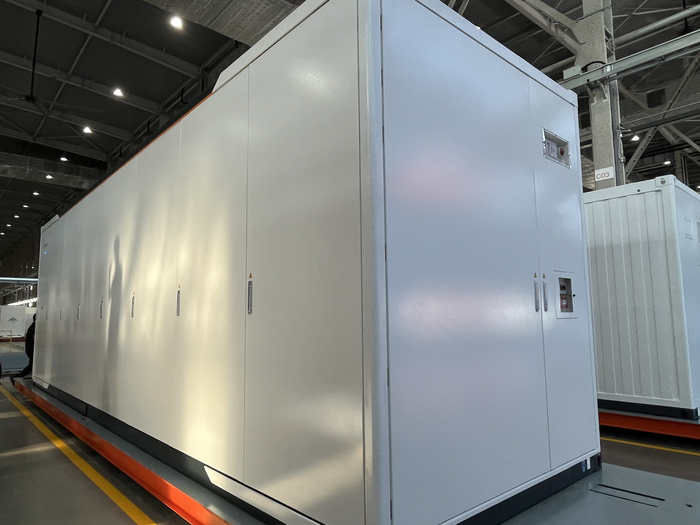by MA Yueran Chinese solar and storage giant Sungrow has unveiled a new energy storage platfo

by MA Yueran
Chinese solar and storage giant Sungrow has unveiled a new energy storage platform, PowerTitan 3.0, boasting the world's largest single-cabinet capacity at 12.5 megawatt-hours (MWh), surpassing CATL's 9 MWh system launched just last month.
Unveiled at its Hefei factory, PowerTitan 3.0 includes three models—Flex, Class, and Plus. The Plus version's 12.5 MWh capacity could power an average Chinese household for more than three years. The system integrates battery and power conversion systems (PCS) in a single unit and is designed for ultra-compact deployment. Sungrow said that in a 1 gigawatt-hour (GWh) storage facility, the new design could cut land use by 45% and reduce cabling by 10% compared with traditional layouts.

Sungrow also introduced a 684 ampere-hour (Ah) battery cell, more than twice the capacity of the now-standard 314 Ah cells, claiming it is the industry's first mass-producible cell above 600 Ah. The new cells use advanced stacking technology, promising 15,000 charge cycles and energy density over 440 Wh/L. Notably, the system features a liquid-cooled silicon carbide PCS, raising conversion efficiency to 99.3%—part of a broader industry shift away from traditional IGBT modules.
In addition to hardware upgrades, PowerTitan 3.0 is backed by an AI-driven smart system matrix. Sungrow said it has established an independent AI team to develop future applications as storage increasingly converges with intelligent technologies.
Sungrow remains the world leader in solar inverters and energy storage. It shipped 147 GW of inverters and 28 GWh of storage systems globally in 2024, topping rankings by S&P Global.
Facing growing competition, including battery makers expanding into system integration, Sungrow executives reiterated that a good storage system involves much more than just batteries. The system also requires advanced PCS, energy management (EMS), and battery management (BMS) technologies, especially as grid-support functions become standard.